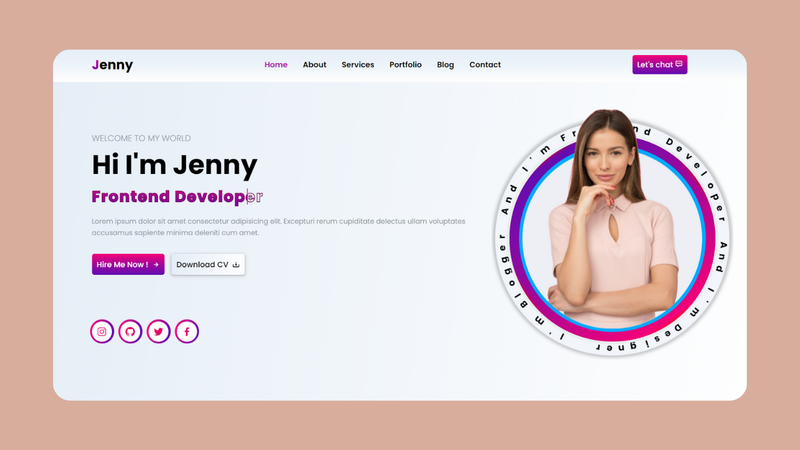Let’s be honest—job hunting is exhausting, discouraging, and often feels like shouting into the void. Rejections pile up, interviews go nowhere, and it becomes harder each day to stay motivated.
But if you’re feeling stuck, know that you’re not alone—and that it is possible to turn things around. The following 20 tips are born from experience, not theory. They come from someone who’s sent out dozens of resumes, weathered silence from employers, and emerged with a clearer strategy.
Whether you’re just starting out or several months into your search, these strategies can help you stay grounded, get noticed, and move forward. It’s not easy—but it’s absolutely doable.
1. Treat Job Searching Like a Full-Time Job
Approach your job search with the same dedication as a full-time job. Set an alarm and dress professionally, even if you’re at home. This mindset shift can boost your productivity and motivation.
A structured day is essential. Allocate specific hours to different tasks like searching for jobs, networking, and applying. Consistency builds discipline and keeps you on track.
Take breaks to avoid burnout. After all, job searching is mentally taxing. By maintaining a balanced routine, you’ll find that your efforts are more focused and rewarding.
2. Create a Job Search Tracker
Staying organized is key in a job hunt. A simple spreadsheet can become your best friend. Log applications, contacts, follow-ups, and interview outcomes.
This tool not only keeps you organized but also reduces stress. You won’t have to remember every detail about your applications—it’s all in one place.
Moreover, tracking your progress can be motivating. It’s rewarding to see how far you’ve come, and it helps you adjust your strategy if needed. Keep your job search efficient and stress-free with this essential tool.
3. Customize Every Resume and Cover Letter
Generic resumes can harm your job search. Instead, tailor each resume and cover letter to the job you’re applying for. Highlight your experience with keywords that match the job description.
This customization shows employers that you’re genuinely interested. It demonstrates attention to detail and a proactive approach.
Tailored applications stand out. They’re more likely to pass through automated systems and grab hiring managers’ attention. Invest time in personalization—it could be the difference between landing an interview or not.
4. Leverage LinkedIn Like a Pro
LinkedIn isn’t just an online resume—it’s a powerful networking tool. Optimize your headline and summary to reflect your career aspirations and past achievements.
Reaching out to recruiters and connections with personalized notes can open doors. Don’t just click “connect”—make it personal.
Engage with content on LinkedIn. Comment on posts, share articles, and participate in discussions. This activity increases your visibility and shows you’re active in your industry. Use LinkedIn strategically to boost your job search.
5. Join Industry-Specific Facebook or Slack Groups
Industry-specific groups on platforms like Facebook or Slack can be gold mines. They often feature job postings not found elsewhere and provide peer support.
These communities are great for networking. Engaging with professionals in your field can lead to opportunities.
Share your experiences and contribute to discussions. Building a presence in these groups can establish you as an active, engaged professional. Find and join these groups to enhance your job search.
6. Tap into Your Network (Without Feeling Weird)
Your network is more valuable than you think. Let people know you’re on the lookout for new opportunities. Networking doesn’t have to feel awkward.
Opportunities often come from weak ties rather than close friends. A distant acquaintance might know of the perfect role for you.
Approach networking with curiosity and authenticity. People are generally willing to help if you’re sincere. Keep connections informed about your job search and see where it leads.
7. Practice Interviewing with a Friend
Mock interviews are invaluable. Practicing with a friend can help you refine your responses and boost your confidence.
This low-stakes environment allows for honest feedback. Your friend can point out areas for improvement you might not notice.
Practice in a setting similar to a real interview. Dress the part and use a structured format. This preparation can make actual interviews feel more familiar and less intimidating.
8. Set Weekly Application Goals
Having a clear goal can make your job search more manageable. Aim for a reasonable number of applications each week—perhaps 10 well-researched ones.
Focusing on quality over quantity is crucial. Tailor each application instead of applying blindly to every opening.
Weekly targets help maintain momentum and prevent burnout. Achieving these goals can provide a sense of accomplishment and keep you on track.
9. Follow Up—But Don’t Harass
Following up on applications or interviews shows interest. A polite email can reinforce your enthusiasm for the position.
Timing is key. Give employers a reasonable amount of time to respond before following up. This patience reflects professionalism.
Set reminders for follow-ups, but avoid frequent messages. You want to maintain interest without appearing desperate. A well-timed follow-up can leave a positive impression.
10. Learn a New Skill for Free
Job hunting is an opportunity to upskill. Platforms like Coursera, edX, or YouTube offer free courses to enhance your resume.
Learning new skills shows potential employers your dedication to personal growth. It can set you apart from other candidates.
Filling resume gaps with certifications or skills demonstrates adaptability. Embrace this chance to learn something new and valuable.
11. Use Your Time to Freelance or Volunteer
Freelancing or volunteering can fill gaps in your resume. It keeps your skills sharp and might offer financial support.
These roles often provide flexibility, allowing you to balance a job search and work or volunteer commitments.
Engage in projects that align with your career goals. This work experience can make you more attractive to employers.
12. Apply to Jobs You’re 70% Qualified For
Don’t hold back if you meet most of the qualifications. Apply even if you’re not a perfect fit; many employers value potential.
Hiring managers often look for candidates with growth potential and the ability to learn quickly.
Applying to these roles broadens your opportunities. You might land a job you wouldn’t have considered otherwise.
13. Budget Like You’re Already Employed
Financial stress can add pressure to your job search. Budgeting as if you’re employed can prevent desperation spending.
This approach keeps your finances in check and prepares you for future employment. It helps maintain financial stability during uncertain times.
Continue frugal habits and plan for the future. This mindset can ease financial worries and let you focus on the job search.
14. Don’t Take Rejections Personally
Rejection is part of the job hunt. It doesn’t always reflect your worth—many factors influence hiring decisions.
Gaining resilience from rejections helps you grow. Each “no” is a step closer to a “yes.”
Reflect on feedback and learn from each experience. This approach helps maintain positivity and persistence.
15. Build a Morning Routine to Fight Burnout
A structured morning routine can combat job search burnout. Start your day with activities like movement, reading, or journaling.
These practices nurture your mental well-being and set a positive tone for the day.
Consistent routines foster resilience and motivation. They help maintain a healthy mindset in the face of uncertainty.
16. Consider Contract or Temp Work
Temporary roles are often stepping stones to permanent positions. They can provide financial stability and valuable experience.
Many companies hire contractors first, leading to full-time offers. Contract work keeps you engaged and can open doors.
These roles also expand your network and skills. Embrace temporary work as a viable path during your job search.
17. Create a Personal Website or Portfolio
A personal website or portfolio makes you stand out. It showcases your skills and achievements in a creative format.
For creatives, developers, or marketers, a digital portfolio is essential. It’s your online handshake, proving your dedication.
Use this platform to highlight projects and testimonials. A well-crafted site can impress potential employers.
18. Stay Away from Scams and Too-Good-To-Be-True Jobs
Vigilance is crucial in job hunting. Be wary of job offers that seem too good to be true—they might be scams.
Research companies thoroughly before applying or accepting offers. Trust your instincts if something feels off.
Use reputable job boards and resources. Protect yourself from scams by staying informed and cautious.
19. Reconnect with Old Mentors or Professors
Former mentors or professors can be invaluable resources. They might know of opportunities or provide introductions.
Reach out and update them on your career progress. Their guidance can offer fresh perspectives and advice.
These relationships often lead to unexpected opportunities. Cultivate them and explore where they lead you.
20. Celebrate Small Wins
Acknowledging small victories keeps you motivated. Celebrate every callback, interview, and resume update.
These milestones are steps towards your goal. Recognizing them boosts morale and maintains momentum.
A positive attitude attracts success. Celebrating small wins fuels your determination and persistence.





















Comments
Loading…